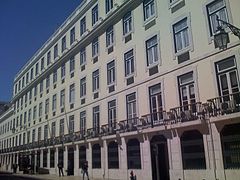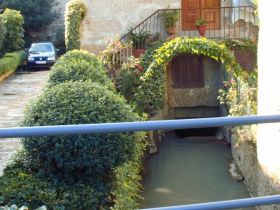How safe and protected are my assets in Portugal?
Duncan MacGregor - Duncan MacGregor Accounting
 The Portuguese banks are not in a great state of health. The Spanish banks are in much better shape. However, Portuguese banks have a guarantee of up to 100,000 euros, which is provided by the Portuguese government. So generally, I would feel secure putting my money into a Portuguese bank account.
The Portuguese banks are not in a great state of health. The Spanish banks are in much better shape. However, Portuguese banks have a guarantee of up to 100,000 euros, which is provided by the Portuguese government. So generally, I would feel secure putting my money into a Portuguese bank account. Currently, we have virtually negative interest rates, which is why the property market is doing well. People are investing in “buy to rent”...
 The Portuguese banks are not in a great state of health. The Spanish banks are in much better shape. However, Portuguese banks have a guarantee of up to 100,000 euros, which is provided by the Portuguese government. So generally, I would feel secure putting my money into a Portuguese bank account.
The Portuguese banks are not in a great state of health. The Spanish banks are in much better shape. However, Portuguese banks have a guarantee of up to 100,000 euros, which is provided by the Portuguese government. So generally, I would feel secure putting my money into a Portuguese bank account. Currently, we have virtually negative interest rates, which is why the property market is doing well. People are investing in “buy to rent” because you get close to nothing on your deposits at the bank.
But as far as making deposits into a Portuguese bank, it is very secure because of the insurance that you will not lose your deposit. These banks are now subject to stress tests, which are conducted by the European Banking Authority, so if they do not have enough capital then they have to find it and raise it.
(Bank of Portugal, Lisbon, Portugal, pictured.)
Posted December 24, 2015
Luis Rodrigues - Gouveia Pereira, Costa Freitas & Associates, Law Firm, RL
 The Portuguese Constitution assures the principle of private ownership of assets regardless of the nationality of the owner. Thus there is no risk of confiscation by the Government authorities. Please note that the Constitution prevails over any law that exists in the country and can only be changed with a qualified majority in the Parliament which is hard to obtain and will (based on the last 40 years of democracy) always require the two main parties (which are both moderate parties) to...
The Portuguese Constitution assures the principle of private ownership of assets regardless of the nationality of the owner. Thus there is no risk of confiscation by the Government authorities. Please note that the Constitution prevails over any law that exists in the country and can only be changed with a qualified majority in the Parliament which is hard to obtain and will (based on the last 40 years of democracy) always require the two main parties (which are both moderate parties) to... The Portuguese Constitution assures the principle of private ownership of assets regardless of the nationality of the owner. Thus there is no risk of confiscation by the Government authorities. Please note that the Constitution prevails over any law that exists in the country and can only be changed with a qualified majority in the Parliament which is hard to obtain and will (based on the last 40 years of democracy) always require the two main parties (which are both moderate parties) to approve it.
The Portuguese Constitution assures the principle of private ownership of assets regardless of the nationality of the owner. Thus there is no risk of confiscation by the Government authorities. Please note that the Constitution prevails over any law that exists in the country and can only be changed with a qualified majority in the Parliament which is hard to obtain and will (based on the last 40 years of democracy) always require the two main parties (which are both moderate parties) to approve it.Besides the protection afforded by the Portuguese Constitution, there is also the European Union rules and the European Union Courts that would also stop this from occurring, as it violates all rules and principles that are in place.
This is not a risk in Portugal as it would mean a complete revolution in the political scenario and in the population’s mentality as there is a tradition of private ownership in Portugal since the day of its foundation back in the year of 1143.
The only legal and possible reason for the Government to assume the ownership of private assets in Portugal is in cases of expropriation for public interest (for example, private land that is required to be transferred to the government for the construction of a highway) in which case the expropriation law would be applied which will allow the owner to receive a fair compensation for its assets calculated on market value prices and supervised by a court judge.
Regarding banks, there were banks that failed during this crisis as in most of other European countries. Nevertheless, the process of bailout made by the Portuguese Government and the European Union did not affect the deposits that existed in those banks.
(The Couros River near Guimarães, a town that precedes the settlement of Portugal, pictured.)
Posted February 16, 2016


